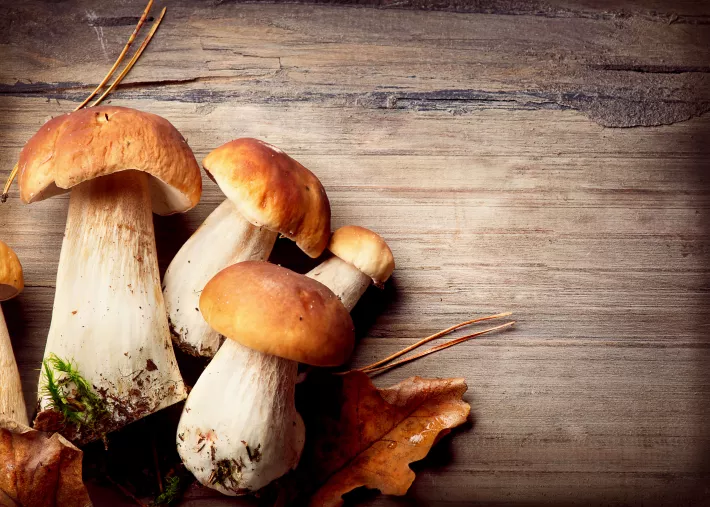Sandy writes:
“Have you studied whether raw mushrooms are safe to eat? I’ve heard a few well-known doctors say there are toxic compounds in them that are destroyed by cooking. I’ve been avoiding raw mushrooms at the salad bar for some time now. What say you?”
Prior to getting Sandy’s email, I was eating raw mushrooms in blissful ignorance, completely unaware of their toxic potential. Having now educated myself, I’m ready to answer Sandy’s question and let you know whether you have anything to fear from eating raw mushrooms.
What’s in Raw White Mushrooms?
A few clicks on Google led me to articles from the well-known doctors Sandy mentioned, all of whom warned that raw mushrooms contain a compound which is toxic to humans. And we’re not talking about exotic wild mushrooms either. We’re talking about the common white button mushroom.
This little fungus just never ceases to surprise me. Years ago, I was taken aback to learn that the plain white button mushroom beat out more brightly colored vegetables like tomatoes, peppers, pumpkins, zucchini, carrots, and green beans as a source of antioxidants. Who would have thought?
But now, it turns out that these most typical of toadstools are also among the most concentrated sources of a naturally occurring toxin called agaritine. Specifically, the concern is that agaritine could promote cancer by messing with your DNA—something it’s been caught doing in test tubes. However, when researchers fed mice water spiked with agaritine for their entire lifetimes, they were unable to detect any effect on cancer occurrence.
Interestingly, the very same mechanism by which agaritine might cause cancer also applies to popular antidepressants, which have been found to slightly increase the risk of certain gynecological cancers.
Foods Are Complex; Diets Are Even More Complex
But foods are different than drugs. While drugs are generally single agents, foods contain multiple bioactive compounds. Mushrooms, in particular, contain many compounds that may boost immune function and lower cancer risk. One study found that a substance in white button mushrooms may reduce the risk of breast cancer by reducing estrogen levels in breast tissue and another found that an extract of white button mushrooms reduced the growth of tumors in mice with breast cancer.
Even if agaritine has the potential to cause DNA damage, mushrooms seem to have more cancer preventive chemicals than cancer-causing ones. Furthermore, the individual foods we choose are often associated with larger dietary patterns—and these larger patterns probably have a more profound impact on disease risk than any one food we do or don’t eat. And sure enough, mushroom consumption is associated with higher overall nutrient consumption.
Should You Always Cook Your Mushrooms?
Agaritine is broken down by heat, which is why the well-known doctors Sandy mentioned advise always cooking your mushrooms. However, agaritine also breaks down when mushrooms are refrigerated, dried, or even just stored. As a result, the raw mushrooms that you’re likely to encounter at your local supermarket or salad bar contain only a fraction of the agaratine found in a freshly picked mushroom.
The Bottom Line on Raw Mushrooms
A team of Swiss researchers calculated that the amount of agaritine the typical mushroom eater is exposed to over the course of their lifetime could potentially lead to 1 extra case of cancer per 50,000 lifetimes. In other words, if it’s a carcinogen, it’s a pretty weak one. And it’s also delivered with an array of cancer preventive compounds, something this analysis didn’t try to account for.
Having looked at all the research, I’m definitely going to advise against spiking your drinking water with pure agaritine. But, with all due respect to my esteemed colleagues, I don’t agree that eating raw mushrooms is as risky as they imply. While you may evaluate this same research and come to a different conclusion, I personally feel completely comfortable continuing to eat mushrooms both raw and cooked.
Image courtesy of Shutterstock.




